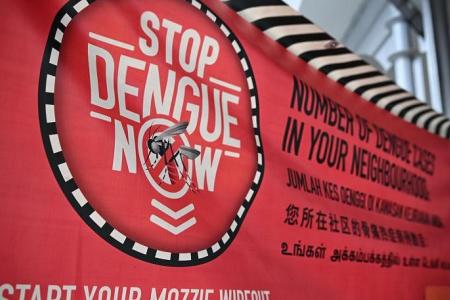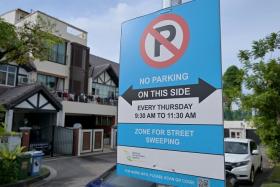3 reported dengue deaths in Q4 2023; infections rise for 7th straight week
There were three reported deaths from local dengue infections from October to December 2023, making a total of six fatalities for the year, said the National Environment Agency (NEA) in its latest quarterly report.
A total of 2,546 cases were reported in the fourth quarter, a 16.6 per cent decrease compared with the previous three months, according to figures released by NEA on Jan 23. There were two reported dengue deaths from April to June, and one from July to September.
In 2022, Singapore recorded 19 dengue deaths amid a total of 32,325 dengue cases, with the latter the second-highest number in a year on record. In 2021, five dengue deaths were recorded.
Local dengue cases have also risen for the seventh consecutive week, with 410 cases recorded from Jan 14 to Jan 20, according to the NEA website.
There were 305 reported cases between Dec 31, 2023, and Jan 6, 2024, and 395 between Jan 7 and Jan 13. Between Jan 21 and 3pm on Jan 22, there were 70 reported cases.
A total of 1,180 dengue cases have been reported so far in January 2024, topping the January numbers in the last three years (1,016 in 2023; 603 in 2022; and 647 in 2021).
There are currently more than 80 active dengue clusters, with 19 classified as high-risk areas with 10 or more cases each, according to NEA’s data.
They include areas such as Boon Lay, Pasir Ris and Ang Mo Kio. The Boon Lay Place cluster is the biggest with 216 cases, followed by 119 in the Pasir Ris Street 71 cluster.
Dengue typically peaks between June and October because of warmer weather, faster multiplication of the virus in mosquitoes and accelerated development of the mosquitoes.
NEA had said previously that Singapore could see a large number of dengue cases in 2024, attributing it to warmer weather due to El Nino – a climate pattern associated with the unusual warming of surface waters in the eastern tropical Pacific Ocean.
Warmer weather caused by El Nino will make it more conducive for mosquitoes to breed, and this may extend the usual dengue peak period that falls between July and October, Senior Parliamentary Secretary for Sustainability and the Environment Baey Yam Keng said last October.
In an earlier Straits Times report, experts said the wet weather in January could lead to a drop in dengue cases, as heavy rain could cause a flushing effect and wash away mosquito larvae.
NEA urged those living in areas with dengue clusters to do their part to stop dengue transmission, and to cooperate with its officers when they inspect properties for mosquito larvae.
The agency also advised the public to protect themselves from Aedes mosquitoes by using insect repellent, among other methods.
Get The New Paper on your phone with the free TNP app. Download from the Apple App Store or Google Play Store now


